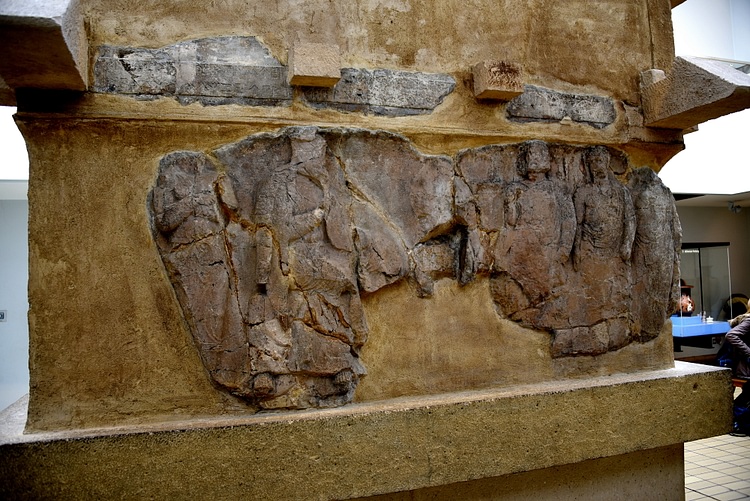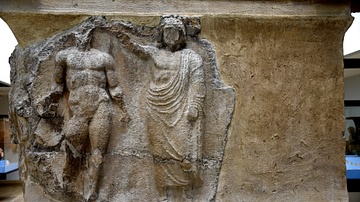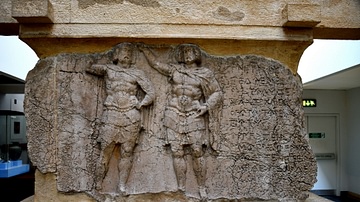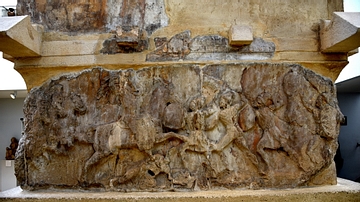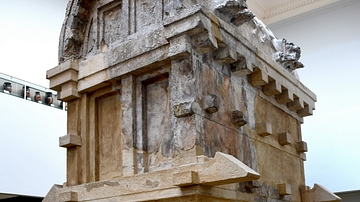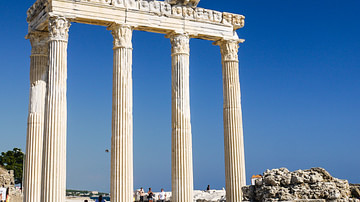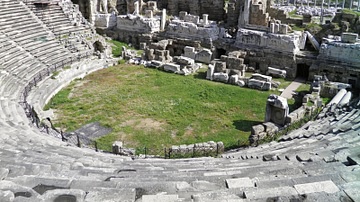Illustration
This relief, which is seen on the south side of the Payava Tomb, depicts a seated Persian, apparently a satrap or governor, with attendent figures. The inscriptions in Lycian probably mention the name of the satrap as Autophradates. The Payava tomb is a limestone tomb with gabled roof. It was decorated with reliefs on its four sides and inscribed with Lycian inscriptions. It was made in Lycia; found in Xanthus. Greek Period, circa 375-362 BCE. (The British Museum, London)
About the Author
Cite This Work
APA Style
Amin, O. S. M. (2016, May 15). Tomb of Payava, West Side. World History Encyclopedia. Retrieved from https://www.worldhistory.org/image/5097/tomb-of-payava-west-side/
Chicago Style
Amin, Osama Shukir Muhammed. "Tomb of Payava, West Side." World History Encyclopedia. Last modified May 15, 2016. https://www.worldhistory.org/image/5097/tomb-of-payava-west-side/.
MLA Style
Amin, Osama Shukir Muhammed. "Tomb of Payava, West Side." World History Encyclopedia. World History Encyclopedia, 15 May 2016, https://www.worldhistory.org/image/5097/tomb-of-payava-west-side/. Web. 09 Jul 2025.

